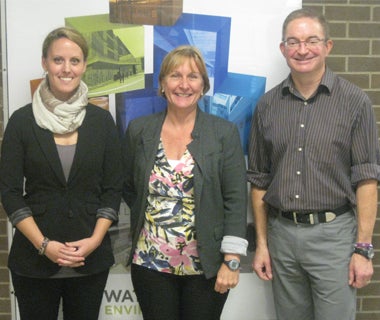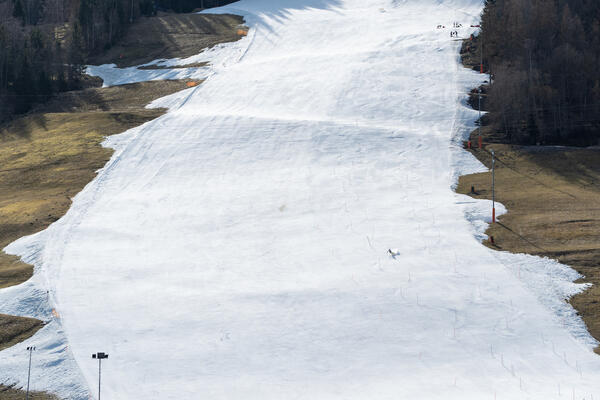
Predicting risks for vulnerable coastal cities
Waterloo researchers are part of an international team helping coastal cities predict and prepare for the effects of climate change.

Waterloo researchers are part of an international team helping coastal cities predict and prepare for the effects of climate change.
By Bob Burtt Communications & Public Affairs Flooding rivers, rising oceans and heavy rains are a rising threat, driven in part by global climate change.
Flooding rivers, rising oceans and heavy rains are a rising threat, driven in part by global climate change.
The Coastal Cities at Risk: Building Capacity for Managing Climate Change in Coastal Megacities (CCaR) project is part of the International Research Initiative on Adaptation to Climate Change (IRIACC). An interdisciplinary international team that includes University of Waterloo Faculty of Environment professors Linda Mortsch and Brent Doberstein, and PhD candidate Erin Joakim is striving to understand problems low-lying coastal communities will face as a result of climate change and help them adapt.
They chose Vancouver as a case study site, for the project funded by the International Development Research Council and other Canadian funding agencies. As the largest coastal community in the country, Vancouver likely will be subject to rising ocean levels, storm surge, rivers that could flood under a changing climate and an increasing population and urban growth and development. All these factors make Vancouver vulnerable.
Vancouver will be studied with three cities in developing countries, including the Philippines, Nigeria and Thailand.
This project will bring together experts in engineering, health, economics and the environment and at the end of the day will produce a number of papers to advance climate change and natural hazards science and more importantly provide cities with information that helps protect people, communities and economic activities at risk from the effects of climate change. “We won’t be telling them what to do, but for instance will develop some scenarios, some mapping of vulnerability that could help decision making.”
Mortsch says the team’s work will identify vulnerable populations in the community “A rising sea or flooding river has consequences for people. Given an order to evacuate, the elderly or poor may get an alert, but if you don’t have mobility how do you get out.”
While it is still hard to attribute disasters like hurricanes Sandy or Katrina to climate change, Mortsch says “those events do reveal our vulnerability - things we need to think about in light of a changing climate. By virtue of a growing population and urban development more people are going to be exposed to those kinds of events. This type of research helps us to anticipate and prepare and build resilience and the capacity to adapt.”

(GettyImages/amriphoto)
Read more
Study reveals changes International Olympic and Paralympic Committees could implement to keep Games viable and safer for athletes

Read more
An ambitious research collaboration with Habitat for Humanity is reimagining home ownership across Waterloo Region and Canada

Read more
Here are the people and events behind some of this year’s most compelling Waterloo stories
The University of Waterloo acknowledges that much of our work takes place on the traditional territory of the Neutral, Anishinaabeg, and Haudenosaunee peoples. Our main campus is situated on the Haldimand Tract, the land granted to the Six Nations that includes six miles on each side of the Grand River. Our active work toward reconciliation takes place across our campuses through research, learning, teaching, and community building, and is co-ordinated within the Office of Indigenous Relations.